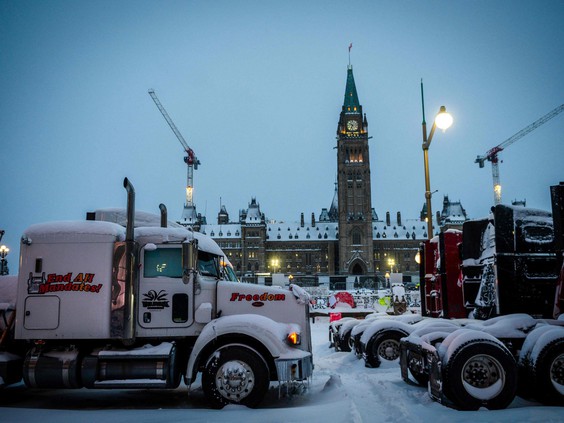February 18, 2022
-Toronto Sun
Under the provisions of the Emergencies Act invoked by the Trudeau government, protests can be banned in certain areas and for most people — but not for First Nations or refugees to Canada.
These exemptions are clearly spelled out in the regulations the government published after invoking the act.
Section 2(1) of the regulations deals with public assembly and states that “a person must not participate in a public assembly that may reasonably be expected to lead to a breach of the peace.” It goes on to describe the prohibition on protests that stop the free flow of people or goods, interferes in any way with critical infrastructure, or involves threats or violence.
The regulations then go on to state that people entering the country cannot enter to participate in a protest.
“A foreign national must not enter Canada with the intent to participate in or facilitate an assembly referred to in subsection 2(1),” the regulations state at Section 3(1).
Just a couple of paragraphs down, though, there are exemptions from this ban on protesting or participating in protests for people entering the country.
“Subsection (1) does not apply to (a) a person registered as an Indian under the Indian Act; (b) a person who has been recognized as a Convention refugee,” the regulations state.
The document goes on to also include protected persons, people in Canada temporarily under certain circumstances, and anyone whose situation is similar to that of a refugee. The regulations appear to only provide an exemption from protesting but not other sections of the act or regulations.
What the regulations do not do is explain why specific groups of people are exempted from the ban on protesting. The government is required by law to submit an explanation of the regulations and why they are needed to Parliament. That document does not give an explanation either.




